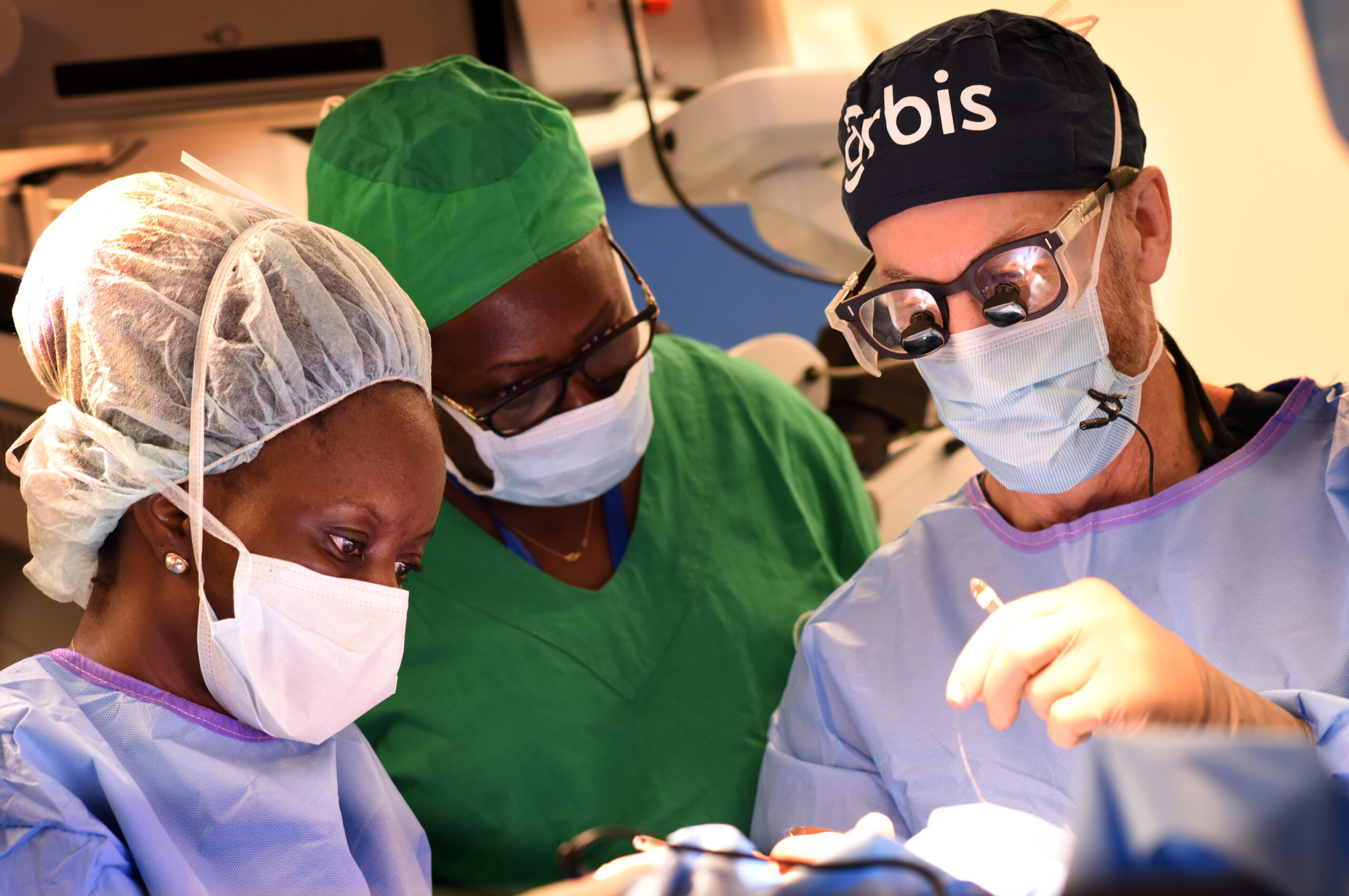On May 31, when the Orbis Flying Eye Hospital touches down in Ottawa for a three-day visit, it will be an opportunity for government leaders and other stakeholders to learn more about this unique plane and its role in supporting Orbis’s mission to fight preventable blindness worldwide.
The Orbis Flying Eye Hospital is hard to miss. An MD-10 aircraft with a bright blue Orbis logo, its outside is a unique hallmark for the international non-profit organization. As with many of the best things in life, though, it’s what’s inside that counts. The Flying Eye Hospital is a state-of-the-art, fully-accredited surgical teaching and training hospital.
With an operating theatre, laser treatment suite, pre- and post-operative care room and a 46-seat classroom, it is fully equipped with technology that can transmit live surgery lectures around the world in 3D via Orbis’s own Cybersight, a telemedicine training and online mentorship platform for eye health professionals in developing countries. This aircraft plays a pivotal role in helping Orbis carry out its important mission.
“One of the best ways to help reduce avoidable blindness in developing countries is to provide local eye care professionals with the knowledge and skills they need to provide high quality eye care to their own people in their own communities,” says Lisa McKeen, CEO of Orbis Canada. “The Flying Eye Hospital is just one tool Orbis uses to do this work, sending highly-skilled eye health professionals – many of them Canadian – to countries in need to share their expertise and train local eye health workers.”

This Canadian connection will be highlighted during the plane’s two Ontario stops in Ottawa and Toronto, when many of the organization’s volunteer faculty – ophthalmologists, anesthesiologists, nurses and biomedical engineers – will share their experiences with guests touring the aircraft. They will be underscoring the most important element of their work – the need to fight preventable blindness and the human and economic toll it creates.
For those in Canada, where appropriate eye care is readily available to most, avoidable blindness may seem like an issue that has mostly been solved. It can be shocking to learn this condition is set to triple worldwide by 2050 if nothing is done to reverse the trend. This is where Orbis is making a difference.
Using the Flying Eye Hospital and their own award-winning telemedicine and real-time e-consultation platform, Cybersight, Orbis Volunteer Faculty can collaborate on diagnosis and treatment with health professionals anywhere in the world – especially where in-person training is not an option.
In 2018 alone, Orbis trained more than 5,800 eye health professionals in 165 countries with Cybersight live teaching events and facilitated more than 2,100 patient consultations. The platform is extremely effective, but using cutting-edge technologies requires extensive support.
The plane that ultimately became the Flying Eye Hospital was donated by FedEx, a global sponsor of Orbis, and more than 100 Canadian eye health professionals donate their time to support the programs—the highest number of volunteers per capita of any Orbis-affiliated country.
“To create sustainable change in communities around the world, we need to leverage advances in technology to provide training to eye care professionals and frontline eye health workers who would otherwise not have access,” says McKeen. “Without our incredible donors and supporters, Orbis could not continue to deliver these programs.”
The Flying Eye Hospital will be visiting Ottawa from May 31 to June 3 as part of its ongoing education and information tour, including an event with the Canada Aviation and Space Museum. To learn more about Orbis Canada, or to make a donation, visit can.orbis.org.

